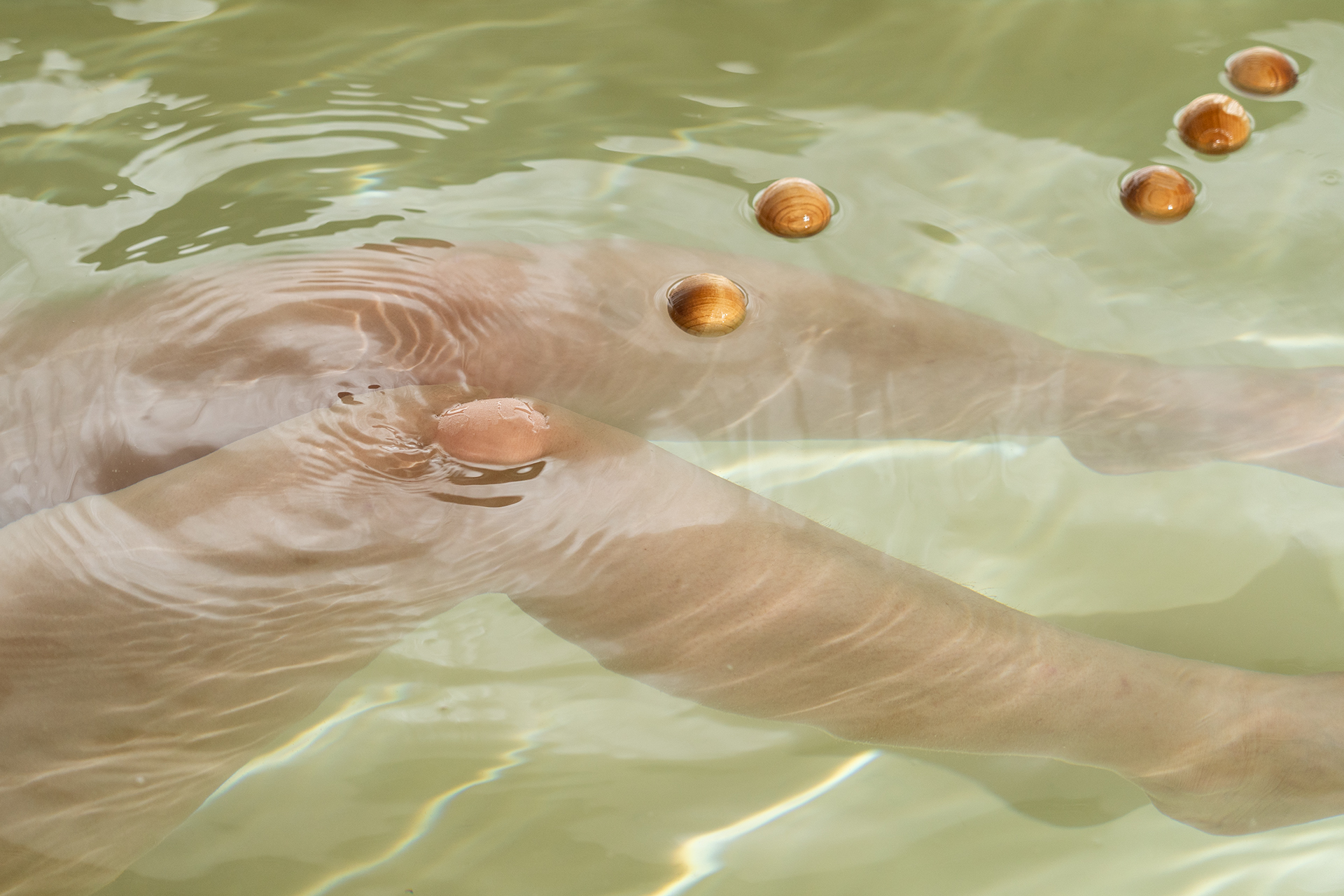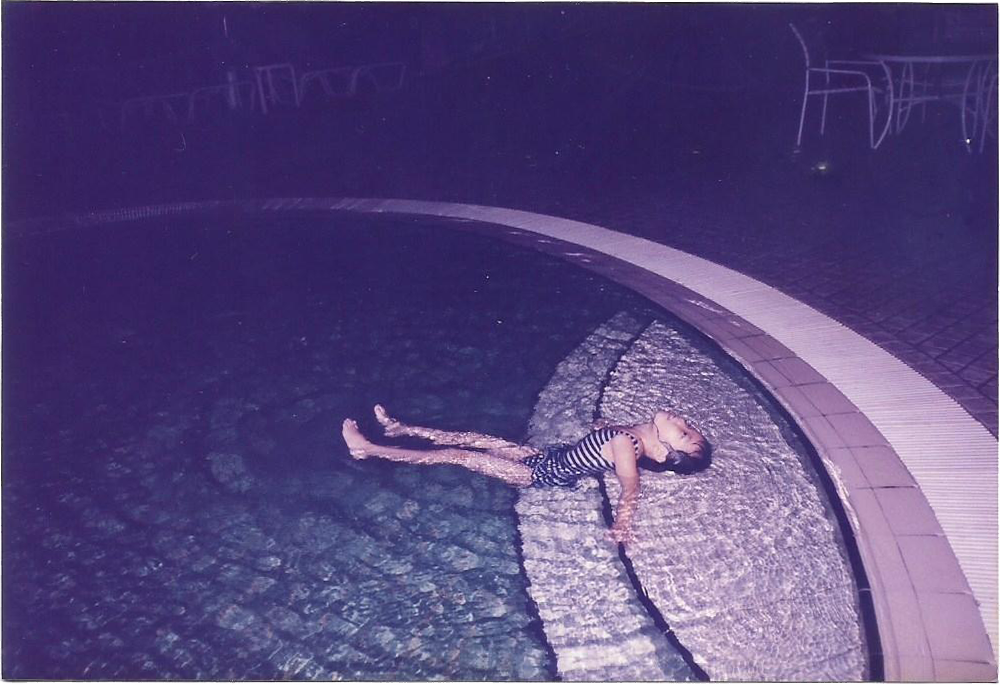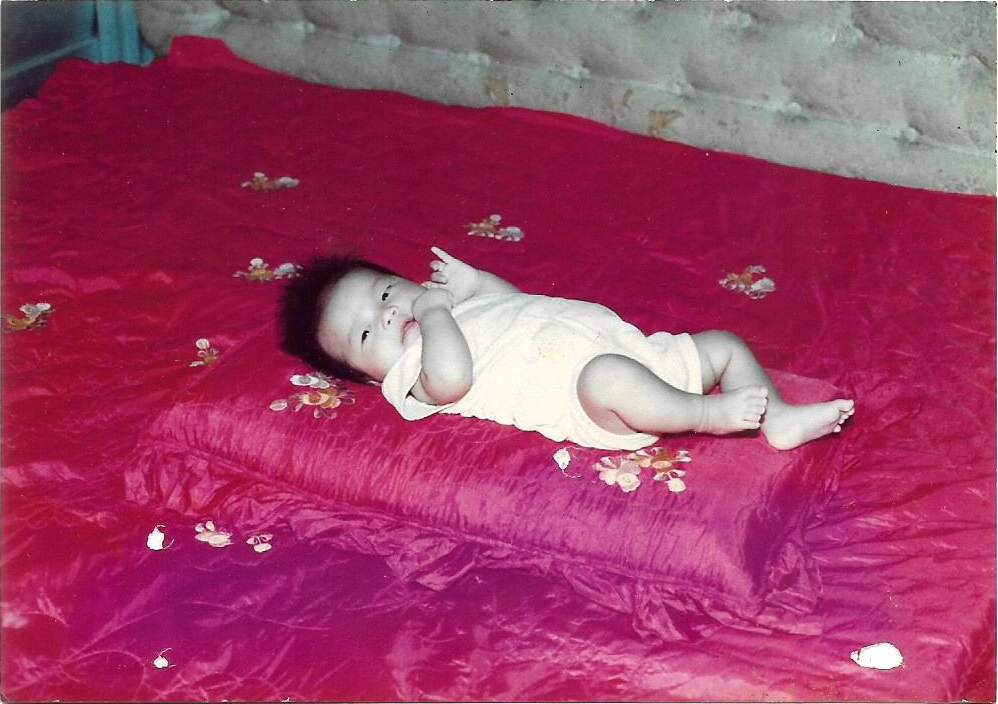ME(E): TO THE STARTING POINT
Low is single at 33, an age when women in Malaysia are often expected to be married with children. Her mother, Mee, was 33 when she gave birth to her.
ME(E) examines motherhood through the perspectives of Mee and Low’s own experiences as a woman, daughter, and artist.
This body of work includes a self-portrait and zine that Low created during the pandemic. At the time, she was living with a family friend and felt infantilised as ‘someone’s daughter’. She questioned her role as a woman and daughter in relation to the shame and restriction she felt with her body.
Consisting of videos, images, family archives, notes and interviews, this work is a collage of thoughts, images and items that are helping the artist make sense of it all in her own way.
This year, Mee is 66.
33 years ago, she was 33 when she gave birth to me.
I might be starting to feel the passage of time, or perhaps I’m finally old enough to understand being a mother. In half of her life experience, we grew up (old) together. Looking back at our old family photos gives me a strange feeling, realising her difficulties of being a mother at the time. Or maybe I’m merely finding meaning in this coincidence to make a project.
I’ve always wanted to express myself through images, maybe starting from myself or my family. But it wasn’t until the pandemic that I began to find my voice. At the time, I strongly felt the inconvenience and restriction of my (female) body, and perhaps shame, growing up in a traditional Malaysian Chinese family. Sometimes, when my mind is cluttered, it’s easier to take photos first and make sense of it later.
Much later, I realised my mom is no longer as strict with me as she was when I was a child. I realised I had grown up.
可能开始对岁月有感觉了。今年妈妈66岁。33年前,她33岁,那时候她生了我。
或者因为我今年33岁才可以感受到当妈妈的年纪。妈妈一半的岁月里,我和妈妈一起成长,老去。在翻看旧照片时回想起以前的生活经历,有种莫名的感受,好像可以体会当妈妈的难处。又或许只是在这个数字的巧合中寻找一个合理的解说来做点什么。
一直想用照片来说话,很多年前曾经有想过先从自身/家里出发,但是不知道说什么,也不知道拍什么。直到疫情期间,才开始对身体有比较强烈的感受,感受到女儿身的枷锁又甚至是羞耻。有时候头脑想不清楚的时候,先拍下来比较容易。
再后来我发现,原来我长大了。妈妈不再像对小时候的我那么硬,那么凶了。原来我在家里也可以有自己的主见了。

On 10 May 2024, between 12:45am and 01:05am, I did an informal interview with my mom inside my bedroom. I thought she had fallen asleep, but she remembered about the interview and woke up at midnight to check on me.
Transcript
哈咯哈咯
Halo Halo
哈咯哈咯
Halo Halo
你是不是小时候就觉得你会做妈妈了?
Did you dream of becoming a mother when you were young?
没有想过啊
Never thought of that
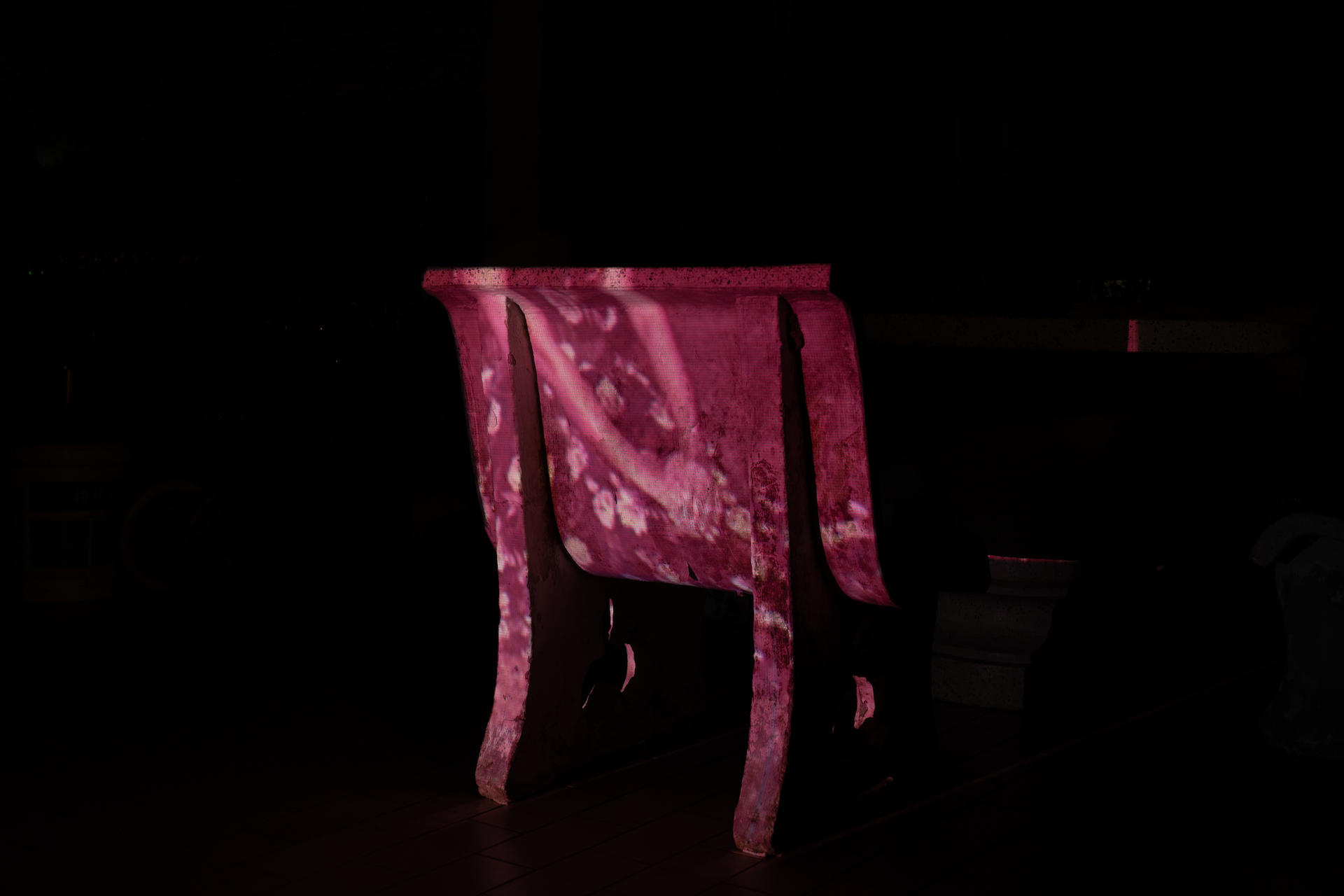
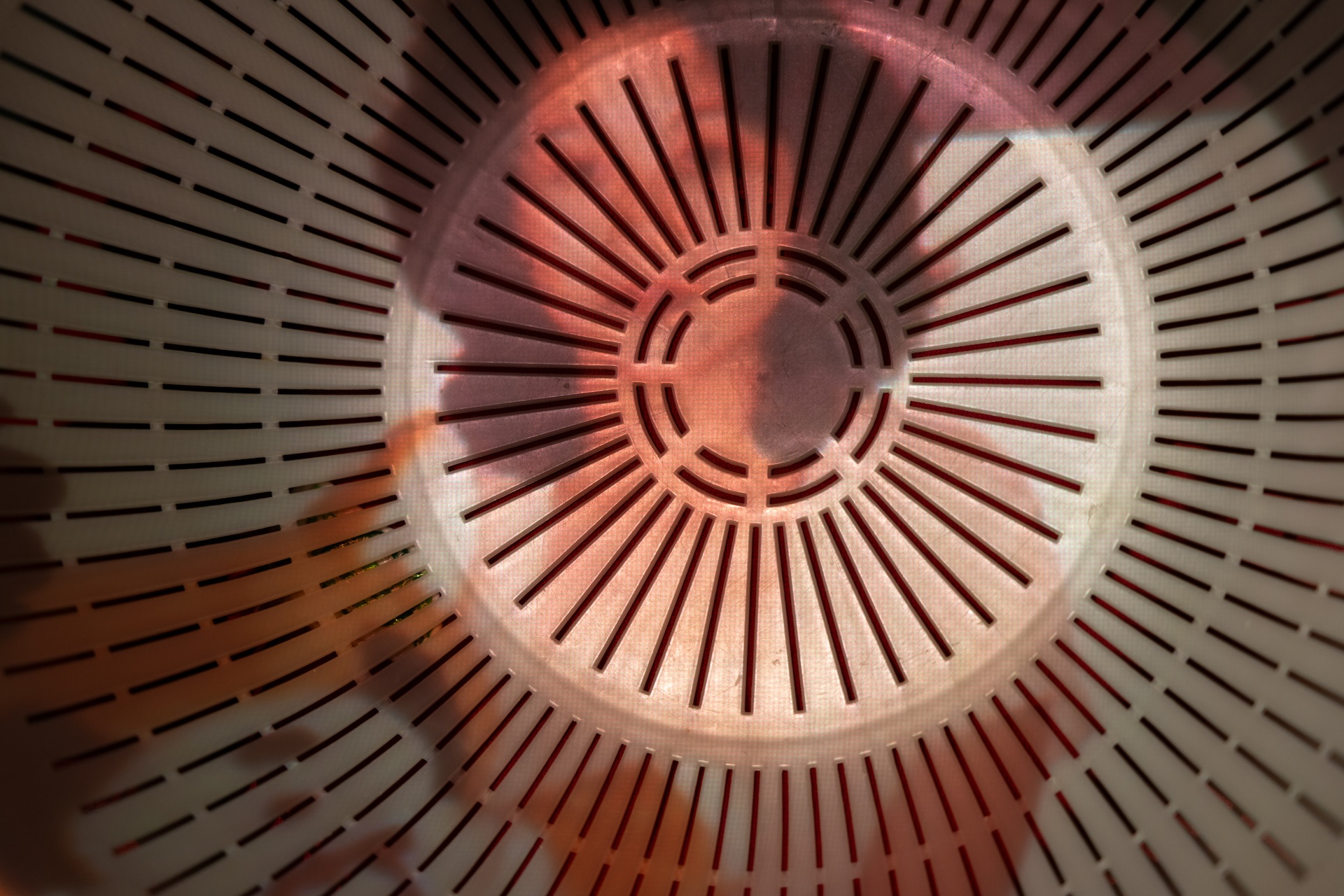
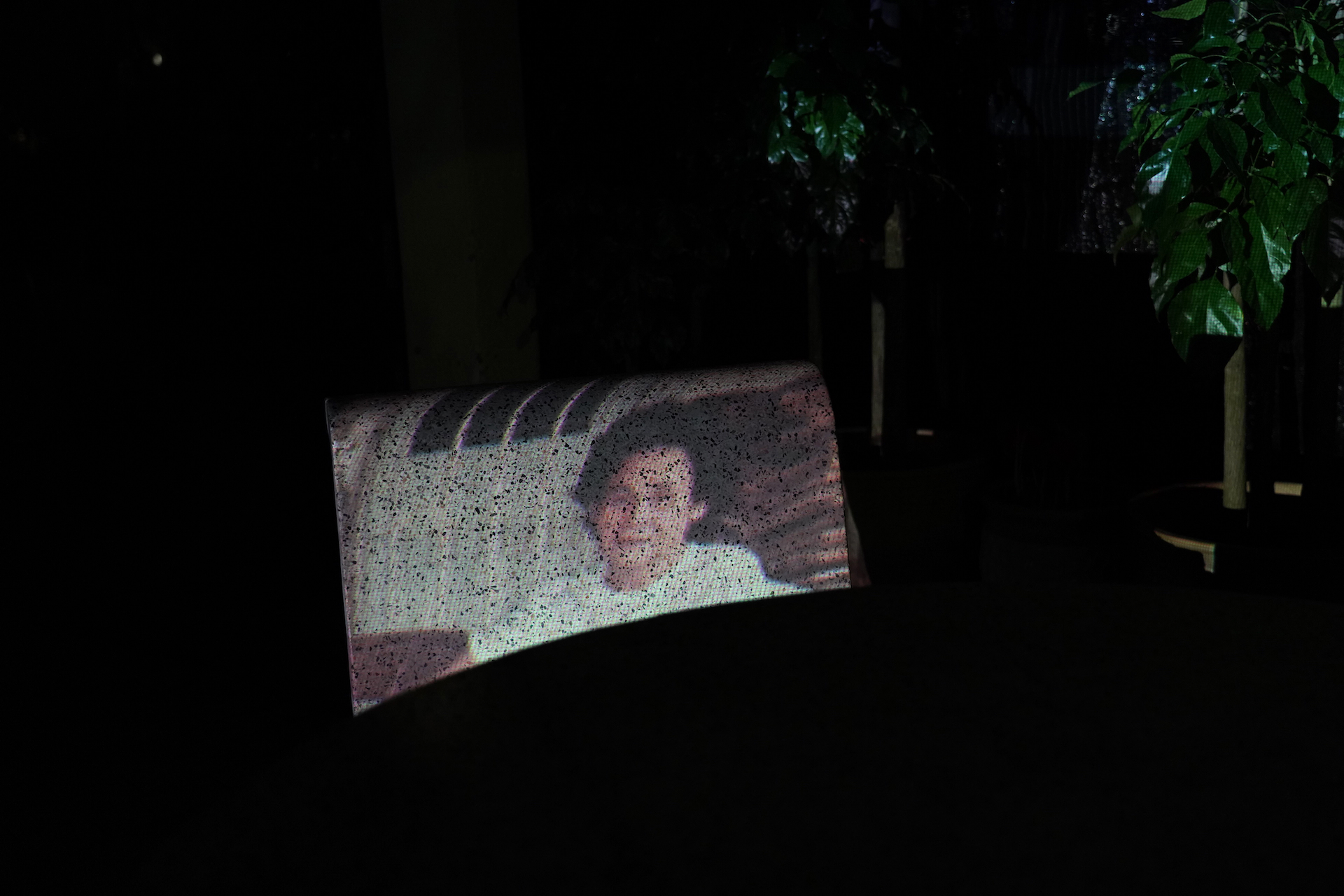
The series projects old photos belonging to my mother to objects found at home. For as long as I know, my mother has been a working housewife, dedicating her entire life to our family.
Revisiting her old photos gave me a glimpse of her past life, before I knew her as a mother. She was young, beautiful and loved to dress up to meet friends. I’m reminded that she was also a daughter, once a child.
Chong Seek Mee, 张石美 (Zhang Shi Mei)

RGB 33,33,66
A square of solid colour,
coded 33 red, 33 green, 66 blue,
which is a dark navy blue.
2023 – 1991 = 33
This year I’m 33 years old,
2024 – 1958 = 66
and my mother is the double of my age, 66 years old.
If 33 + 33 = 66,
then do two of me equals mom?
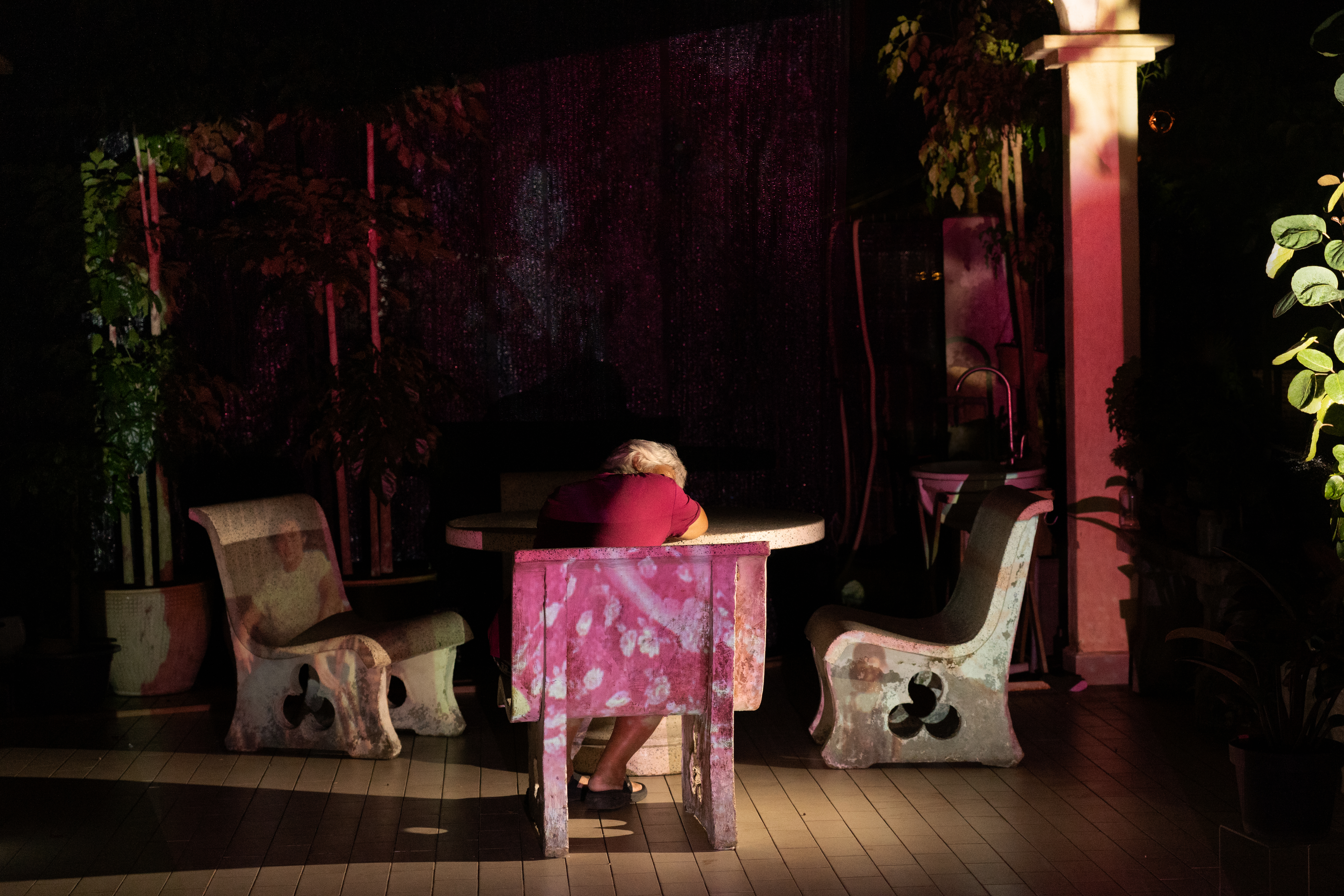
I asked my mom to participate in my work in return for a 500MYR fee. I wanted to try out projection in photo, so I projected the mothers in my family in the porch – my grandmother, mother and elder sister.
My mother asked me what she should wear, and if she should comb her hair. I told her she looked fine, and she will be lying down with her back facing camera. But I also realised I didn’t ask her how she wanted to be portrayed.
如果你没有做妈妈,你觉得你会做什么?
If you didn’t become a mother, what do you think you’d be doing?
做工啦,餐馆做工的以前
Working, I used to work in a restaurant
然后结婚后就没有做工啦?
After you got married, you stopped working?
没有做工,后来有啦。后来孩子多了,就是要做的哪里够用
Not working, but I did later. After having more children, I had to work to support the family.
你结婚过后做过什么工?
What kind of work did you do after you got married?
我一开始做打扫嘛,然后才卖nasi lemak, 炒粿条,然后又去karaoke打扫,打扫然后又去Tembeling做清洁工
At first I did cleaning jobs, then selling nasi lemak, fried noodles, then cleaning karaoke places, and then did cleaning work in Tembeling.
妈妈你有几个孩子?
Mom, how many children do you have?
我有五个孩子,两个男、三个女
I have five kids, two boys and three girls.
你觉得养孩子怎样?
How do you feel about raising children?
有孩子(笑)做到半死 (大声苦笑)
Having children (laugh) is exhausting (laugh).
这样有孩子好还有没有孩子好?
So, is it better to have children or not?
当然有孩子好,改次老了有孩子养
Of course, it’s better to have children. When we get old, our children can take care of us.
你是以意外生的,意外生的。你的干妈讲生这样多干嘛干嘛,生两个就好。好彩有生到你,改次有幺女照顾
You were an accidental child, accidental. Your godmother said why have so many children, just two would be enough. Luckily, I gave birth to you, my youngest daughter can take care of me next time.

I had an idea that my mom wore her late mom’s shirt,
and I wore my mom’s dress for a photo.
She said she would look so old with her mom’s shirt.
I think we look funny wearing our parents’ clothing.
About Low Pey Sien
Low Pey Sien (b. 1991) is a Malaysian artist from Kuantan, Pahang. She works in photography, film, and graphic media. Her works observe the relationship between space, place, and people.
In 2020, during the lockdown, she spent about two solitary months in a warehouse-turned-arts space, where she began making a visual diary of herself. The self portrait series ‘The Future of (a Work that is Buried in a Hard Disk)’, was exhibited in the Objectifs’ open call for ‘Women in Film and Photography 2023: Bodies’, in Singapore. She further explored her pandemic project in the ‘Artist-in-Residency Program 2023: Starquakes’ at Aomori Contemporary Art Center, Japan, and made ‘No Self, Just Body’ exhibition. She also freelances as curator and producer.
Curator: Celina Loh
Online exhibition design: Mishkath (Mishi) Ahmed Rasheed
Producers: Abdul Shakir, Hana Zamri, Celina Loh
With special thanks to: Hannah Wallis, Muzium Telekom, Saan1
Continuum is the end of the residency exhibition part of Creative Access in New Media Arts, a five-month online residency by In Transit in collaboration with Filamen, supported by the British Council’s Connections Through Culture Grant.
Throughout the residency, the artists explored methods of integrating access and projection into their creative practice.








